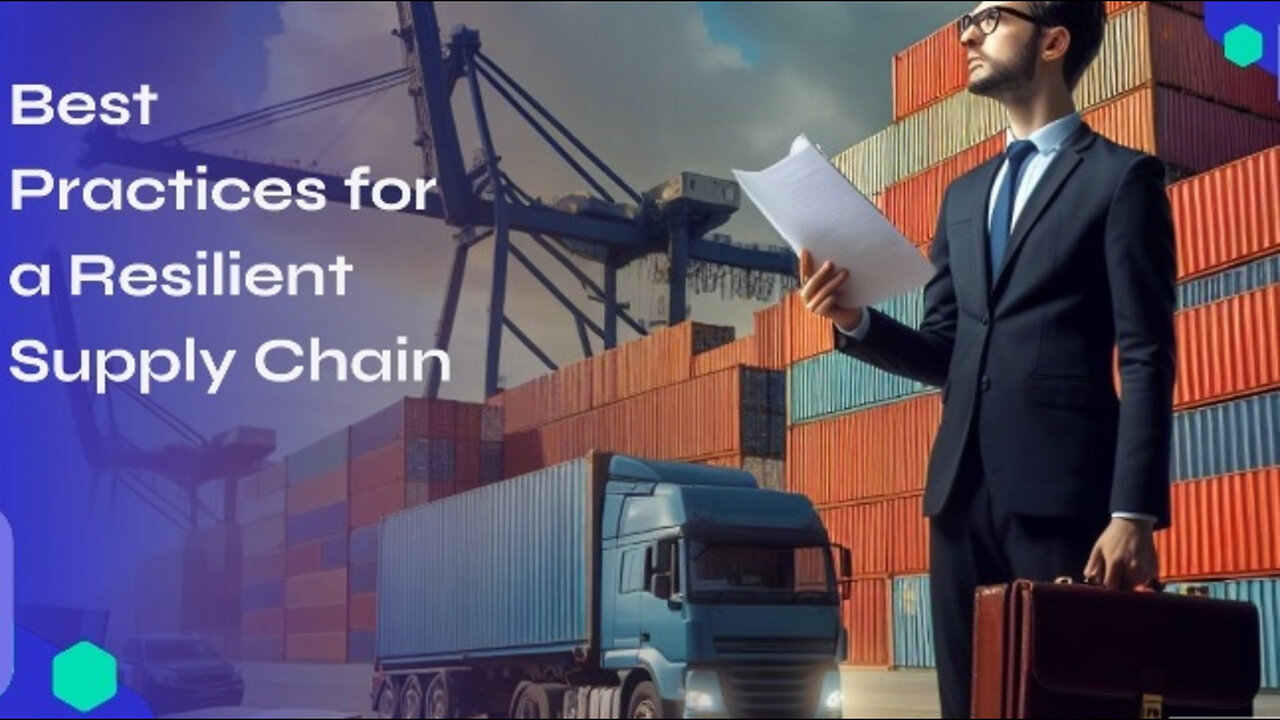Premium Only Content

Maximizing Supply Chain Resilience: Best Practices for Importer Security Filing
License To Import // 323-578-6432 // file@licensetoimport.com // www.licensetoimport.com
This video discusses the best practices for Importer Security Filing (ISF) and how it contributes to supply chain resilience. ISF is a requirement by the Customs and Border Protection (CBP) where importers must submit data about incoming cargo to enhance supply chain security. The video highlights several best practices for ISF, including submitting the filing on time, ensuring accuracy, maintaining transparent communication, having a customs bond, implementing supply chain visibility systems, and staying educated. By following these best practices, importers can navigate through the complexities of international trade with confidence and maintain a resilient and efficient supply chain.
#usimportbond #isfcustomsbroker #uscustomsclearing #isfentry
Video Disclaimer Here: This video is solely for education and is not endorsed by any US government agency.
00:29 - Importer Security Filing (ISF) is crucial for supply chain resilience as it provides advance information about incoming cargo to Customs and Border Protection (CBP).
1:03 - Best practices for ISF include submitting information on time, ensuring accuracy in filing, maintaining open communication with stakeholders, and having a customs bond in place.
2:45 - Implementing supply chain visibility systems and staying informed about customs regulations are essential for a smooth flow of goods and risk mitigation.
3:11 - Continuous education and engagement with industry experts are key to navigating the complexities of international trade and ensuring compliance with customs procedures.
-
 5:20
5:20
License To Import
2 days agoWhere To File ISF For Audio Splitter And Converters
7 -
 1:33:55
1:33:55
Glenn Greenwald
9 hours agoGaza Starves, Pro-Israel Propagandists Escalate Extremist Rhetoric and Actions | System Update #444
110K257 -
 LIVE
LIVE
EnDuEnDo
4 hours ago🚨Variety Stream 🎮 Push to 500 Followers 🚀 Chill Vibes 😎
114 watching -
 11:04:48
11:04:48
GrimmHollywood
12 hours ago🔴LIVE • GRIMM HOLLYWOOD • SHADOW OF THE ERDTREE FIRST PLAYTHROUGH • PART 1
43.6K2 -
 1:40:13
1:40:13
megimu32
6 hours agoON THE SUBJECT: This Timeline is Broken: Epstein, Aliens & Summer Anthems
34.5K18 -
 1:02:42
1:02:42
Donald Trump Jr.
11 hours agoMAHA Means Business, Interview with Calley Means | TRIGGERED Ep.237
138K56 -
 1:53:52
1:53:52
Joker Effect
3 hours agoWhy aren't you trying to enjoy yourself? Live a little! https://go.mother.land/joker
30.6K1 -
 LIVE
LIVE
NeoX5
5 hours agoTyping of the Dead | Don't Be Afraid 2 | Rumble Gaming
158 watching -
 57:50
57:50
BonginoReport
8 hours agoFAKE News In A Downward Ratings Spiral - Nightly Scroll w/ Hayley Caronia (Ep.36)
108K80 -
 7:58:02
7:58:02
Dr Disrespect
13 hours ago🔴LIVE - DR DISRESPECT - TRIPLE THREAT CHALLENGE - WZ, PUBG, FORTNITE
177K12